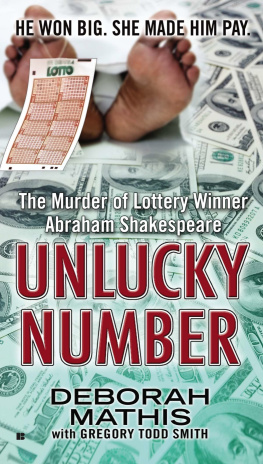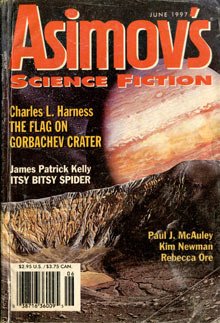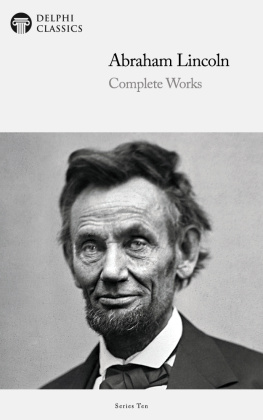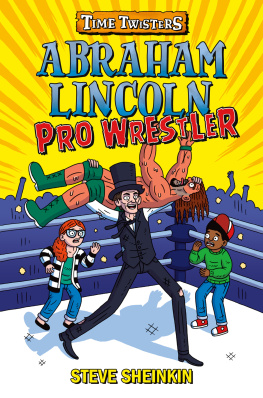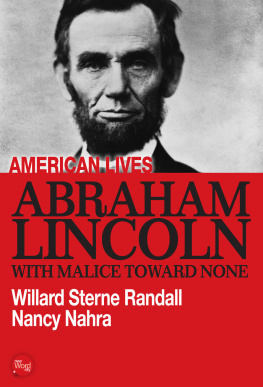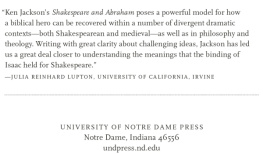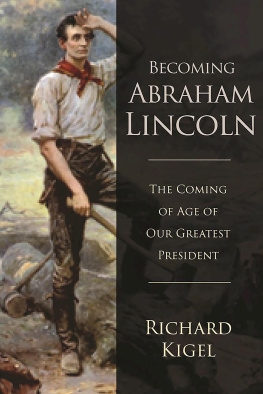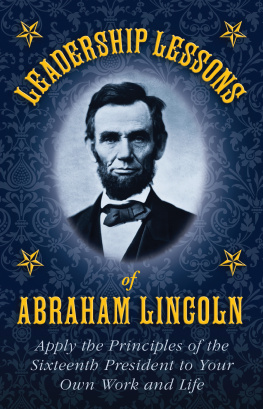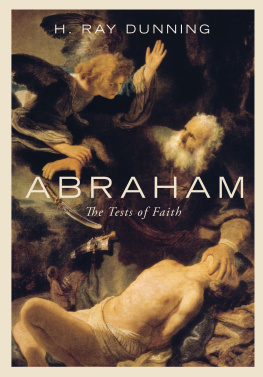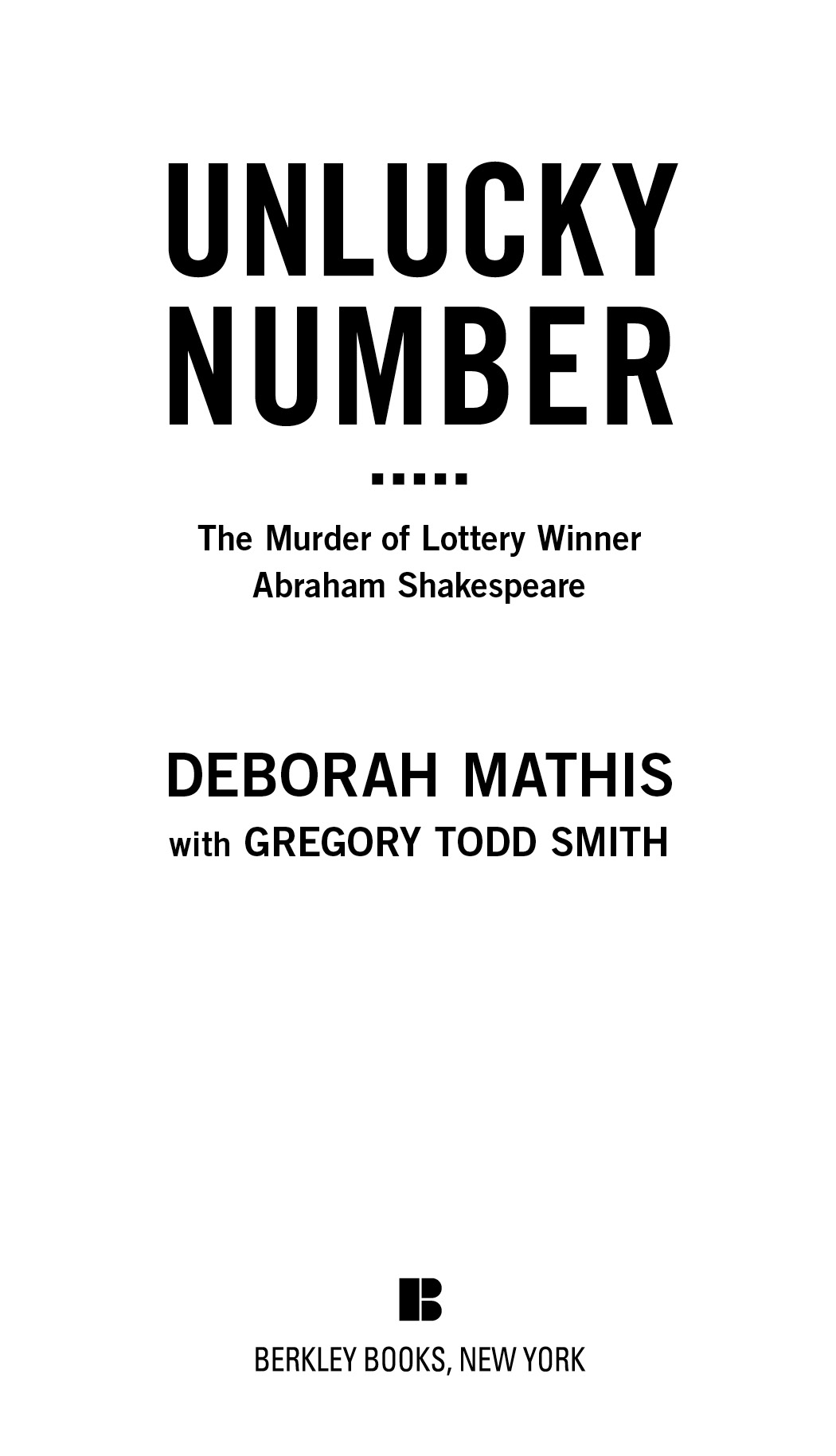Man of the Hour
Foolishly, or at least naively, Abraham did not gather a team of experienced professionals before his astonishing news was made public. When he appeared at the television station to accept the big check that night, he had no lawyers or financial experts standing by in the greenroom to whisk away his newfound wealth to some fiduciary fortress, and no one to shield him from the swarm of supplicants who began begging from him within hours of the word getting out.
There are legends about jackpot winners being besieged by long-lost cousins and self-declared best friends, not to mention out-and-out scam artists with cant-lose propositions. Abraham must have heard them, too, but his had been such a simple and obscure existence that he might not have grasped that he was now a celebrity, and he certainly didnt know how to behave like one. Nothing in his experience would have prepared him for how aggressive people could be when a human treasure chest suddenly appears in their midst.
THE BERKLEY PUBLISHING GROUP
Published by the Penguin Group
Penguin Group (USA) LLC
375 Hudson Street, New York, New York 10014

USA Canada UK Ireland Australia New Zealand India South Africa China
penguin.com
A Penguin Random House Company
UNLUCKY NUMBER
A Berkley Book / published by arrangement with the author
Copyright 2015 by Deborah Mathis.
Penguin supports copyright. Copyright fuels creativity, encourages diverse voices, promotes free speech, and creates a vibrant culture. Thank you for buying an authorized edition of this book and for complying with copyright laws by not reproducing, scanning, or distributing any part of it in any form without permission. You are supporting writers and allowing Penguin to continue to publish books for every reader.
BERKLEY is a registered trademark of Penguin Group (USA) LLC.
The B design is a trademark of Penguin Group (USA) LLC.
For information, address: The Berkley Publishing Group,
a division of Penguin Group (USA) LLC,
375 Hudson Street, New York, New York 10014.
eBook ISBN: 978-0-698-15925-9
PUBLISHING HISTORY
Berkley premium edition / February 2015
Cover design by Oysterpond Press.
Cover photos: Money background Aleksander
Bryliaev / Shutterstock; Feet Pamela Moore / Istock photo.
Most Berkley Books are available at special quantity discounts for bulk purchases for sales, promotions, premiums, fund-raising, or educational use. Special books, or book excerpts, can also be created to fit specific needs. For details, write: Special.Markets@us.penguingroup.com.
Version_1
To Moses and Jeremiyah, who we hope have inherited their fathers good heart.
ACKNOWLEDGMENTS
Writing a book can be cathartic. It can be exhilarating. It can be rewarding. But it is always hard and time-consuming work. The writer has to lay many other activities and engagementsand peopleaside during the research and writing process. So, patient, loving, and forgiving kin contribute as much to the final product as anyone, perhaps more, given that they provide the love, nourishment, and understanding that allow the writer to spend hours upon hours in solitary confinement, of little use to anyone or anything else.
For that reason, I must thank my loved ones for putting up with my absences, moodiness, and preoccupation over the course of this important book project. They understood that this story had to be told, and no matter how remiss I was when it came to their needs, they only talked about mine. I am, as always and forever, grateful for this marvelous bunch. I am also grateful to my sister and her husband for making the introductions that made this book happen. My daughter, Allison, provided priceless service and relief to me as my research assistant and helpmate.
Many thanks to my literary agent, Jill Marsal, who believed in this project from the start and saw it to fruition, notwithstanding her sometimes unwieldy client.
Gregory Todd Smith is the hero of this story, and he is my new, true friend. I am grateful for his honesty, availability, patience, and trust in me to tell his story. Many writers wanted to do it and could have. He chose me, and I am honored by that choice.
On Gregorys behalf, I would also like to thank Sergeants David Wallace, David Clark, and Christopher Lynn, of the Polk County Sheriffs Office. They entrusted Greg to help them break the case and not only promised to have his back, but had it. Their dedication and skill are a tribute to law enforcement. Greg also wishes to thank Polk County sheriff Grady Judd, who committed the manpower and resources it took to ensure that an illiterate, often homeless, but kindhearted mans murder did not go unnoticed and unpunished.
DEBORAH MATHIS
PREFACE
In March 2014, on the brink of the annual college-basketball showdown known as March Madness, billionaire Warren Buffett teamed with Quicken Loans to concoct a get-rich-quick scheme to beat all. They would pay $1 billion to anyone, eighteen or older, who correctly predicted the winners of every game in the sixty-three-game national tournament. Even with the number of contestants limited (one per household) to fifteen million entries, the odds of winning were a mind-numbing one in nine quintillion. But that didnt stop people from trying. (Unsurprisingly, no one won Buffetts bracket contest. No one even came close. Most people were eliminated on day one; no one remained by the end of day two.)
Although Buffetts March Madness bracket scheme was not a lottery per se, like a lottery, it was a game of chance and showed, once again, that the dream of striking it suddenly and gloriously rich is alive and well. Not even absurd, nearly impossible odds can quell it.
Lotteries have been a part of the United States since its very founding, when tickets to games of chance were sold to help fund the development of some colonies (such as Jamestown, Virginia), and at one point were considered not only a viable way to raise revenue for public causes, but a civically responsible one. At one time, all thirteen original colonies had a lottery to raise revenue for public services. But, in time, the lotteries became riddled with bribery, payout defaults, and other corruption. They fell into such disrepute that evangelical reformers were able to successfully press a moral argument for prohibition, and by 1895, government-run lotteries were banned nationwide.
The lotterys official comeback took nearly three quarters of a century, beginning in New Hampshire in 1964. Today, armed with regulations and safeguards, forty-four states, plus the District of Columbia, Puerto Rico, and the U.S. Virgin Islands, all sponsor lotteries. Only Alabama, Alaska, Hawaii, Mississippi, Nevada, and Utah abstain.
Both religious and public policy advocates routinely oppose lotteries (the former usually due to biblical strictures, and the latter typically out of concern over the governments reliance on fantasy-fueled games of chance to fund essential services like public education), but state and multistate lotteries are wildly popular among the masses. It is estimated that about 120 million American men and womenhalf of all adults in the countryplay state-run lotteries each year, accounting for $45 billion in receipts. Only about 1,600 of them will win a million dollars or more. The rest of us have to settle for a few bucks, if were at all lucky, or more likely just add the useless slips to our pile of poor choices. The summer house in the Hamptons, the ski chalet in Saint Moritz, the foundation we were going to endow, the freedom from indebtedness, and the ability to tell the boss to take this job and shove itall will have to live a bit longer in our fantasies and most likely will live there forever. But hope springs eternal that Fortune will make a rewarding pit stop our way. Indeed, the randomness of a lucky strike is part of the lotterys appeal. It can happen to anyone, from any walk of life, and in even the most obscure places.

